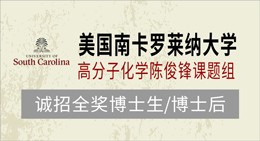Ambio ( IF 5.8 ) Pub Date : 2024-05-20 , DOI: 10.1007/s13280-024-02028-1 Rutger Remmers , Niki Frantzeskaki
Over the last decades, bee biodiversity has dropped sharply due to land use change, including urbanization. To contrast this, recent research has pointed to cities as a hotspot for bees. Because of this ambiguity, a scoping review has been conducted to examine the urban characteristics that impact bees and how bees are impacted. A total of 276 articles were analyzed against landscape and local habitat characteristics. The key findings include first that natural areas are more valuable for bees since biodiversity levels are higher. Second, urban areas generally score better than agricultural and rural areas. Third, plant biodiversity positively influences bee biodiversity. Fourth, the urban environment strongly affects some bee traits and the proportion of native bees. For making cities bee friendly and bee inclusive, we recommend to maintain natural areas, connect natural areas to urban ecosystems, encourage floral abundance and diversity and increasing the size of urban green areas overall.
中文翻译:

城市中的蜜蜂:范围界定审查的结果和城市规划的建议
在过去的几十年里,由于土地利用的变化,包括城市化,蜜蜂的生物多样性急剧下降。与此相反,最近的研究指出城市是蜜蜂的热点地区。由于这种模糊性,我们进行了范围界定审查,以研究影响蜜蜂的城市特征以及蜜蜂如何受到影响。针对景观和当地栖息地特征总共分析了 276 篇文章。主要发现包括,首先,自然区域对蜜蜂来说更有价值,因为生物多样性水平更高。其次,城市地区总体得分高于农业和农村地区。第三,植物生物多样性对蜜蜂生物多样性产生积极影响。第四,城市环境强烈影响一些蜜蜂的性状和本地蜜蜂的比例。为了使城市对蜜蜂友好且具有包容性,我们建议维护自然区域,将自然区域与城市生态系统连接起来,鼓励花卉丰富和多样性,并增加城市绿地的整体规模。












































 京公网安备 11010802027423号
京公网安备 11010802027423号